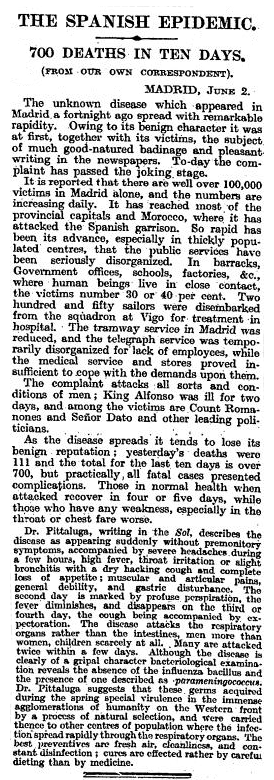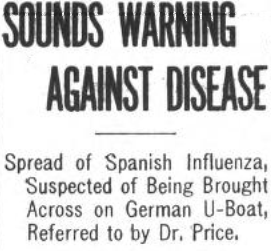There seems to be no definitive answer to this question. There is no reference to the name that can be securely cited as the first; however in May 1918 Canadian and American newspapers reported that many people in Spain were falling sick from a “strange new disease.”[1]
Although Spain was not the only nation affected, newspapers were obliged not to report anything that could distress either the soldiers or civilians of the combatant countries. Neutral Spain was free of such restrictions and therefore a convenient culprit. In June 1918 The Times (London) reported on what it termed the Spanish epidemic.[2]

In its February 1919 edition Maclean’s Magazine suggested that it was the Germans who had named it Spanish in order to pre-empt the use of its proper name which was the German plague. And the Daily British Colonist told its readers that the ‘flu had arrived on a German submarine. [3]

1. Mark Osborne Humphries, The Last Plague: Spanish Influenza and the Politics of Public Health in Canada (Toronto: University of Toronto Press, 2013), p. 79, p. 230, n. 56, “Grippe Epidemic Prevails in Spain,” Morning Bulletin (Edmonton), 29 May 1918, p.1.
2. Humphries, Last Plague, p. 79, p. 230, n. 59, “The Spanish Epidemic,” The Times (London), 3 June 1918, p. 5.
3. Janice P. Dickin McGinnis, “The Impact of Epidemic Influenza: Canada, 1918-1919”, Historical Papers / Communications historiques, Volume 12, Number 1, 1977, Pages 20-140, p. 138, n. 1, discussion of the choice of name. <http://id.erudit.org/iderudit/030824ar> accessed on 3 March 2014.
